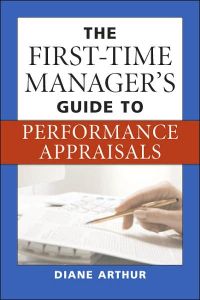Join getAbstract to access the summary!

Join getAbstract to access the summary!
Diane Arthur
The First-Time Manager's Guide to Performance Appraisals
AMACOM, 2007
What's inside?
The dreaded yearly evaluation can actually be a positive, energizing experience, whether you’re the boss or the employee.
Recommendation
Using Diane Arthur’s methods, you’ll be able to turn an experience that both managers and employees often dread into a positive and constructive exchange. Her writing style is clear, concise and focused; she gets her points across with bulleted lists, sample forms and a list of 70 tips scattered throughout the book and then summarized in an appendix. getAbstract proposes Arthur’s healthy focus on coaching, counseling and future development to new human resource managers and supervisors who must conduct regular performance appraisals.
Summary
About the Author
Diane Arthur has more than 30 years of experience in HR as a consultant and speaker. She is the author of many books and articles, and president of a management consulting firm.
















Comment on this summary